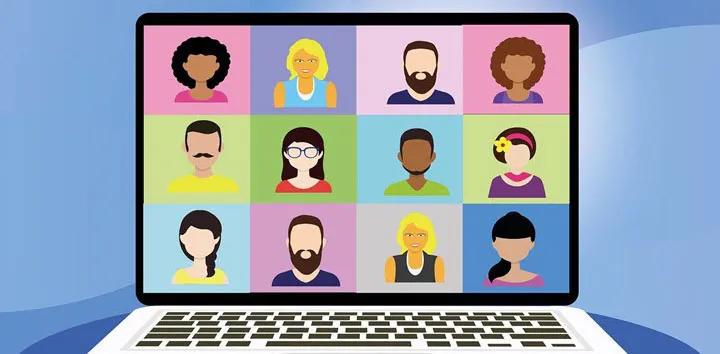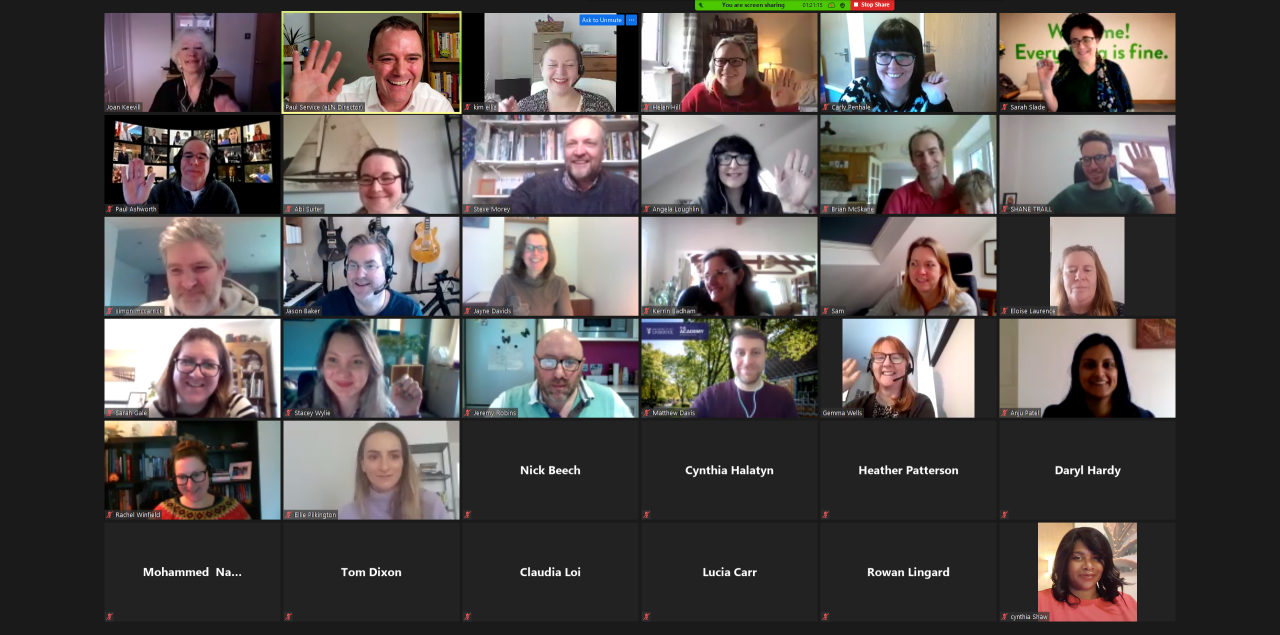There are many ways to get your team together, but did you know that using Webinar Vs Meeting Zoom can help make events more engaging?
Zoom allows people from all over the world who aren’t able or willing to travel in person to connect through video chat. This means they don’t need an appointment time slot – just show up when it works best for everyone!
Users have reported being able to share screens while working on projects and completing tasks simultaneously which boosts productivity exponentially because no one was left behind before now.
Meetings of any kind are a great way for people who want to communicate and share their thoughts with others, but during group work sessions or meetings where everyone has an opportunity to speak up, it can get pretty chaotic.
That’s why one of the most productive uses? Meets! When you host these types of events on your computer using webinar software, all attendees will be able to see what others think while they listen in silence if necessary (or use video). And since there isn’t just 1 person talking at once like normal conferences tend to; this makes communication easier because we’re not having separate conversations among ourselves — instead everything flows together effortlessly thanks.
Major events like all-hands meetings for a company, sessions of a municipal council, or product launches can be accommodated by Zoom Webinar.
It is able to accommodate both inside and outside organizations which provides an insight into when it would work best as opposed to having one solely scheduled through the platform’s features such comparison helps break out what type of premium meeting you should use depending on your occasion!
With Zoom Webinar you can hold major events like product launches and client conferences with a quality audience participation that will make your message come alive. You’ll be able to share the stage for discussions, ask questions after each presentation or discuss issues face-to-face no matter where they are in our global network of presenters all over!
Zoom Meetings

Virtual meetings are an excellent way for teams who may not always work together or have the opportunity to meet in person.
Because these sessions encourage collaboration at all times, every attendee has access and a chance to exchange information through switching on/off their video feeds as needed while also being able to contribute orally once things get going–especially if you need more space than what’s available physically around your own desk!
These virtual gatherings can be especially productive when everyone involved already knows one another from previous interactions; however, this does mean that there will probably never quite feel “real” enough since nothing carries over outside of digital terrain.
The following is a list of the most important elements that you may make use of in your meetings:
Waiting Rooms: The waiting rooms are a great way to ensure that only those who have been invited can participate in your event. In addition, you will need access codes which can be obtained from the host or provided upon arrival at check-in time with an invites code if necessary!
Registration: With Zoom meetings, you can schedule your meeting in advance and collect data from participants on a registration form. If they’re using licensed software or if it’s an online event with remote attendees who need to register for something like this too-you might also want them there!
Screen sharing allows the meeting’s host to provide useful material to participants while also allowing those attendees to share their own screens. Sharing your screen allows you to also share the sound from your computer, which is convenient for listening to music or watching films.
Online Whiteboarding gives you the option to share a whiteboard in addition to your screen whenever you share your screen. Sharing a screen that is blank white and may be annotated is now possible thanks to this feature.
You may write on it, draw on it, and even put stickers on it, much like a regular whiteboard in a school. The host of the meeting has the option of letting attendees co-annotate, which means they may additionally draw on the information that is delivered.
You can break out a room for more intimate collaboration and conversation in smaller groups with the Breakout Rooms function. This is possible because each session has its own location, meaning you have the flexibility to organize your conference however best suits its needs!
Reactions allow participants in a meeting to interact with one another without disrupting the flow of the discussion by using an emoji to express their reactions. The participant’s video will have an emoji tucked away in one of the corners of the screen.
Chatting can take place both one-on-one and in groups within the meeting itself, and both options are supported. The host of the meeting has the ability to decide who the attendees can speak with or to block the feature completely.
Polling: Licensed users of Zoom Meetings have the ability to create and run as many as 25 polls concurrently during a single meeting. You may involve your meeting attendees by conducting polls with either a single choice or several choices.
Licensed users of Zoom Meetings have the opportunity to stream their presentations to YouTube Live, Facebook Live, or streaming service of their own creation, which allows them to reach a larger audience.
View management allows the host or a co-host to highlight up to nine video participants as the principal active speaker, and participants will only see these people while they talk.
Putting the spotlight on a keynote speaker is a common use of this tool. It is also possible for the host or co-host to modify the order in which the guests view the gallery.
When hosting big meetings, it is essential for the host to be familiar with the features to which they have access, as well as the methods by which those features may be enabled or disabled. Check out our blog post on safeguarding your Zoom Meetings if you want your online event to be safe and go smoothly without any interruptions.
Zoom Webinars

Zoom Webinars is an add-on service that may be purchased in conjunction with a paid Zoom Meeting license. It is designed to connect and engage audiences located all over the world. When used for webinars, Zoom offers the same high video quality and dependability as its other services, and it guarantees that users have a smooth experience overall.
When it comes to utilizing Zoom for webinars, the following are some of the important aspects that will make your online events entertaining and impactful:
Registration: You have the option to demand registration before attendees may participate in your webinar. In the same way that meetings may be customized, your registration page can also be altered to collect the information you want.
Branding: Personalize the registration page for your webinar by giving it a unique color scheme, title, banner, logo, and information about the presenters.
URLs for source tracking Within Zoom’s webinar product, you have the ability to establish one-of-a-kind links that give you the ability to know where your registrants are originating from. This is helpful if you distribute the webinar registration page in several locations. To determine whether the source tracking link is more successful, you may, for instance, post one on Facebook and another on Twitter and then compare the two.
During the Q&A portion of the webinar, attendees are given the opportunity to submit questions for the presenter to answer. Questions that are sent in can be answered by the host, the co-hosts, and the panelists. In addition, participants will be able to respond to and vote on the questions posed by other attendees provided the host permits this functionality. Following the completion of your webinar, you will be able to receive the Q&A report and go through the questions that were asked. Reviewing the questions and themes that attendees had during a webinar, for instance, enables you to deliver a post-webinar follow-up experience that is more precisely tailored to their needs.
Connections with PayPal and Eventbrite — These integrations work well for billing attendees of your online classes or speaking engagements. The Eventbrite connector lets you sell tickets, manage registrations, and automatically sync participant information for your webinars as well as meetings.
The PayPal link enables you to charge a registration fee for your webinars. Visit the Zoom App Marketplace to learn more about the additional connections that we provide for webinars.
Post-webinar survey: When you are setting up your webinar, you have the option of configuring a survey that will show after the event. You have the option of creating the survey on your own or having your participants be sent to a survey solution provided by a third party. Utilizing this function to collect feedback on how well your event was executed, how well your material was received, and so on is a terrific way to improve future events.
Management of the views that attendees see is possible with webinars because of the presence of three-screen technology, which makes it possible to display panelists, the active speaker, and the presentation all at the same time.
In addition to this, the host has the ability to highlight videos from numerous people, which anyone attending on a desktop may view. The sequence in which the Gallery View is shown can also be changed by the webinar host and panelists.
Broadcasting — If you use Zoom for webinars, you not only have the potential to reach a larger audience, but you also have the option of streaming your presentation to YouTube Live, Facebook Live, or to a platform of your own design.
Quick Links:
Conclusion: Webinar Vs Meeting Zoom 2025
Depending on the kind of experience you want to provide your attendees, you should think about using Zoom meetings or hosting webinars.
These days, meetings are much more participatory, and they provide a variety of methods for people to get involved.
The host of a webinar has the ability to present to a very big audience while maintaining full control over the webinar itself, as well as full permission to manage the panelists and attendees of the webinar.






